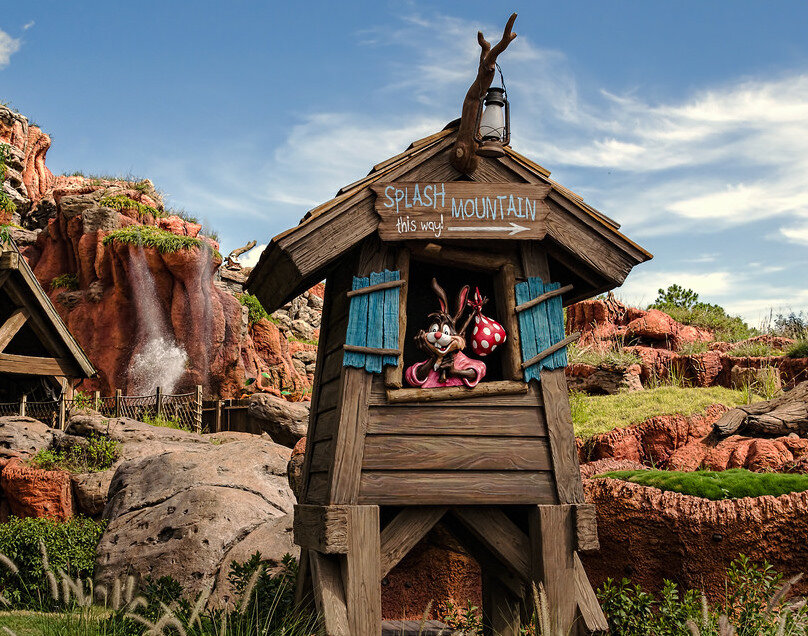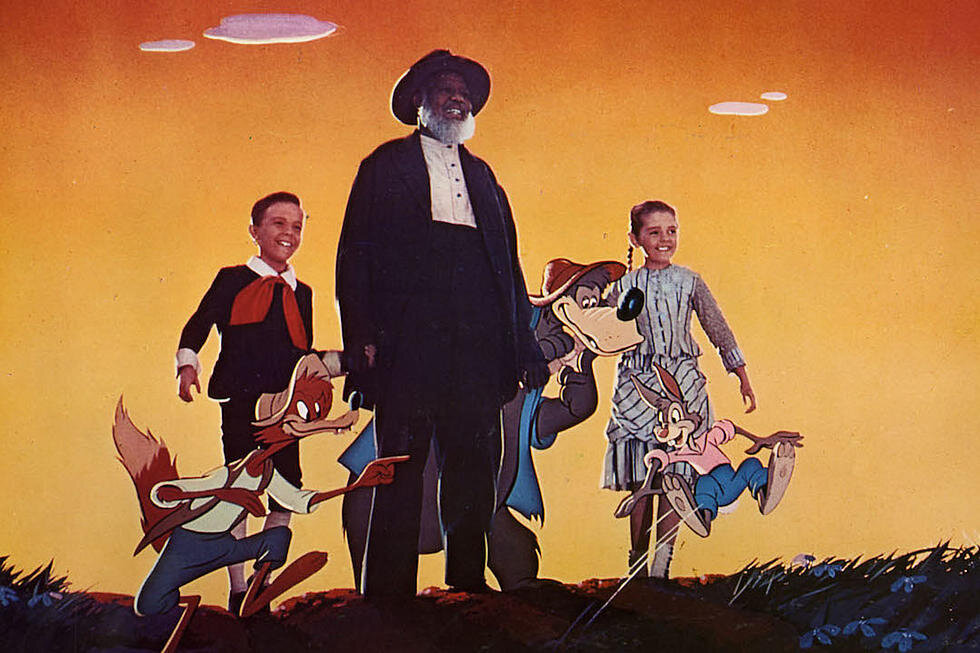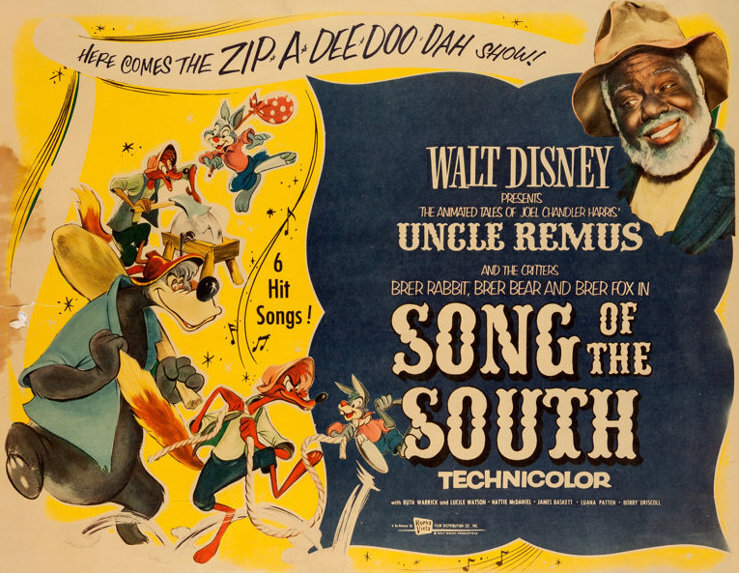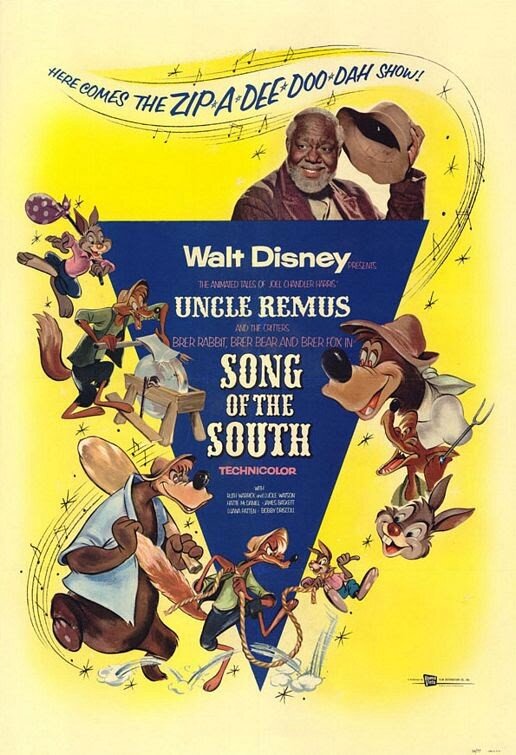Listen to this episode on Apple Podcasts.
After two more successful theatrical releases, in 1980 and 1986, Disney decided to put Song of the South in the “Disney Vault,” and never released it on home video or theatrically in the US ever again. And yet, at the same time, the company was developing a theme park ride around Song of the South’s characters and its most memorable song--but without Uncle Remus, or any signifiers of the complicated racial and historical dynamics the film, however clumsily, portrayed.
SHOW NOTES:
Sources for the whole season:
Walt Disney by Neal Gabler
Disney's Most Notorious Film: Race, Convergence, and the Hidden Histories of Song of the South By Jason Sperb
Birth of an Industry by Nicholas Sammond
Stony the Road by Henry Louis Gates Jr.
White Screens/Black Images by James Snead
Slow Fade to Black by Thomas Cripps
Making Movies Black by Thomas Cripps
Bright Boulevards, Bold Dreams: The Story of Black Hollywood by Donald Bogle
Toms, Coons, Mulattoes, Mammies, and Bucks: An Interpretive History of Blacks in American Films by Donald Bogle
Joel Chandler Harris: A Biography and Critical Study by Bruce R. Bickley Jr.
Sources specific to this episode:
Dream it! Do it! My Half Century Creating Disney’s Magic Kingdoms by Marty Sklar
Designing Disney: Imagineering and the Art of the Show by John Hench
Imagineering: A Behind the Dreams Look at Making the Magic Real by Disney Editions
Birth of an Industry By Nicholas Sammond
“Animation Sings In Song of the South” by Charles Solomon, Los Angeles Times, November 21, 1986
“Song not Ended for Disney” by James A. Snead, Los Angeles Times, December 27, 1986
“Should dated films see the light of day?” Donald Liebenson, Los Angeles Times, May 7 2003
“Song of South: A Fascist Film?” by Thomas Pleasure, Los Angeles Times, August 2, 1981
“'Beulah Land' has something in it to offend almost…” by Joan Hanauer, October 7, 1980, UPI Archives
“Exploring Disney's Fascinating Dark Phase of the 70s and 80s” by Ryan Lambie
Jun 26, 2019, https://www.denofgeek.com
“Eisner's 19 Years At Walt Disney” by David Leonhardt, December 1, 2003, The New York Times
http://legacy.aintitcool.com/node/6325
http://vintagedisneylandtickets.blogspot.com/2010/07/remembering-deborah-july-8-1974.html
Music:
The music used in this episode, with the exception of the intro and outro, was sourced from royalty-free music libraries and licensed music collections. The intro includes a clip from the film Casablanca. The outro song this week is “South is Only a Home” by The Fiery Furnaces.
Excerpts from the following songs were used throughout the episode:
Great Hopes - Bjarni Biering Margeirsson
The Missing Pie - Jeffrey S Lippencott, Mark Thomas Williams, James Miles Hankins
Fancy Footwalk - Daniel Horacio Diaz
Curious Affairs - Daryl Neil Alexander Griffith
Gumshoe Blues - Paul Martin Pritchard
Linger Awhile - Marian Mcpartland
Mists of Antiquity - Sidney John Kay
Serene Pastoral Folk Blues - Alexandre Stephane Rusian Toukaeff, Baptiste Vayer
Sneak Easy - John Neille Rufus Altman
Whimsicality - Laurent Dury
The Setup - Daniel Horacio Diaz
Looking for Clues - Daryl Neil Alexander Griffith
Our Man in Miami - Daniel Horacio Diaz, Andre Paul Marie CHISL Charlier
Yacht Club - Alain Francois Edouard Bernard
Illustrious Prince - Laurent Dury
Lazy Pastoral Folk Blues - Alexandre Stephane Rusian Toukaeff, Baptiste Vayer
Free Stylin - Daryl Neil Alexander Griffith
The Pleasure Handiwork - Mathieu Claude Laurent
Credits:
This episode was written, narrated and produced by Karina Longworth.
Editor: Andi Kristins.
Research and production assistant: Lindsey D. Schoenholtz.
Social media assistant: Brendan Whalen.
Logo design: Teddy Blanks.

























